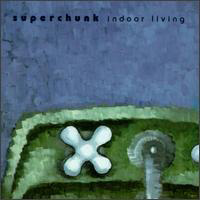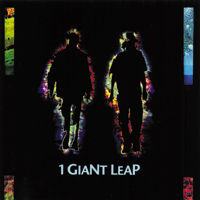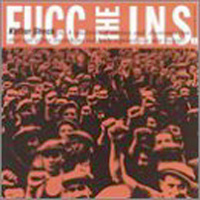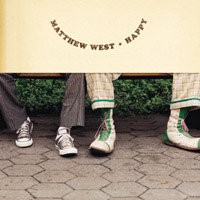 Matthew West
Matthew West
Happy (Universal)
by Jamie Kiffel
God Bless Matthew West.
The world loves a pop singer in a Catholic schoolgirl’s uniform. But what about a Christian schoolboy with a guitar?
Matthew West was born in small town Illinois, an honest-to-goodness son of a preacher man. He learned to sing listening to his mom and dad crooning “cheesy duets” at weddings and harmonizing with his mama during hymns. So how in tarnation did this country boy get himself on Universal’s label, poised to turn 13-year-old girls into the kind of puddles reserved only for Justin Timberlake? Believe it or not, he just sang about what he believes in: God.
Power pop with wide-open sing ’em hard and love ’em hard chords, throw off your clothes and run naked screaming harmonies, lyrics that kiss toward rhymes and then drop them on their unsung asses at all the right intervals – we love this stuff, but we never get it. The best music junkies among us spend their nights locked in closets with headphones, silently screaming along to “Bye Bye Bye.” What’s a person with ears and a radio to do?
I was wondering this the day Matthew West’s debut release from Universal South records landed on my desk.
On first listen, I thought my jaded rock reviewer’s ears were hearing a contrived studio morsel mixed by Britney or Justin’s people and engineered to precisely the pitch proven to make young girls wet themselves and young boys uncontrollably sign up for dance lessons. But there was something more here. The lyrics had… meaning. The essential rot-pop rhymes (“baby/maybe”; “pain/same”; “lovah/guttah” to name a few) were suspiciously missing. And, though I wasn’t even sure I should believe it, something real was in their place.
“My first show was to a sellout crowd,” West confided in a recent phone interview. “It was big time. In the front row were all of my girlfriends, right there, just to see me. Twenty-five elderly women from the local senior center.” That show was Godspell, it was high school, and the seniors were carted in by West’s dad, Joe. Not quite The Mickey Mouse Club with a stage mom screaming potential lawsuits from the wings.
West wasn’t one of those shoegazing dudes who wear $7 leather jackets, write poetry on Starbucks’ wi-fi, and call themselves singer-songwriters, either. More likely, he could’ve been making fun of them. “I was captain of my football and baseball team,” he says. And then one fine day, his junior high school choir teacher did the unthinkable: She told one of the coolest guys in sportsdom that he should become a singer. “Frankly, I just thought it would cut into my game time.” But something in him wanted to belt out Godspell, too.
But a future in music was still far from West’s head. “Honestly, I thought I was going to get a scholarship in baseball,” he says. He didn’t. And “for some reason,” his parents encouraged him to look into music at Idaho’s Millikin University. And it was there that he picked up a guitar, majored in commercial music, and started classical training. His influences: There was Counting Crows, John Mellencamp, Hootie and the Blowfish, and Blues Traveler. “Stuff like that jumped out at me because I thought hey, I can learn to play that today!” West says. “But James Taylor… When I heard ‘Fire and Rain,’ I thought okay, I want to write songs.”
Thing is, James Taylor had already been invented and sold plenty of records. Hootie’s, Mellancamp’s and the Crows’ seats were long-taken. Luckily, West was working on his own special niche: God. “Being the son of a preacher man, it’s hard to avoid the faith element in my life,” he says. “I remember at the end of my freshman year in college, I’d in some ways gone off the deep end. I was in church three days a week back home, and we lived right behind my church. If I wasn’t home, I was at the church, mowing the lawn at the church, seeing my 25 senior citizens from the church.”
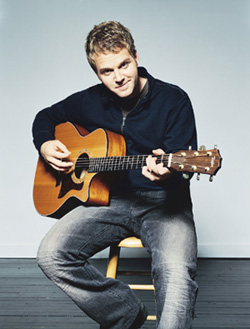 So how does a fine-voiced religious boy make the leap to charcoal-voiced rockstar?
So how does a fine-voiced religious boy make the leap to charcoal-voiced rockstar?
“To leave for school without the preacher’s son title on me became a huge opportunity for me to find my faith on my own terms,” West says. “I came to a place where I was like, ‘I’m not going on the coat tails of my family.’ But I still felt like something was empty in my life, just hanging out, trying to meet the right girl, and I started looking at the lyrics I was writing, and I thought I was writing about a girl, and as I looked at the lyrics and the love I was talking about, it dawned on my heart, I don’t think I’m going to find this in one person or at this frat party or on this campus. From that point, I realized I’m going to continue writing from this perspective: The faith is my real life. A lot of people don’t write about real life, real vulnerability, and it gets to be watered-down fluff. This label allowed me to write real songs about my life. These songs are going to come through from a faith perspective, and I hope they come through just as real as if I wrote about heroin addiction. It just happens to be a positive message.
“Kid after kid came up to me at secular colleges, even Notre Dame, and they’d go man, there’s something about your music, the way you carry yourself, your lyrics that’s real, and I really apprecate your standing up for what you believe. And I was just playing songs, I never said what I believed. But they responded to the fact that I didn’t hold back. It dawned on me that pe
ople want people to stand up for something. And if I stood up and said this is a song about saving the tuna and I want to save the tuna, they might have stood up and applauded. But I said this is about my faith and my faith in God.
“Friday nights after the frat parties, 12:30 on the quad, 150 kids gather around, and the party ends with me playing solo,” West remembers. That was the beginning: West realized he had an audience. And by the time he’d graduated in May of ’99, he’d been discovered. Just not in the way he’d expected.
“Cindy Wilt was one of the first people who really took an interest in the songs I was writing,” West says. But she didn’t sign West to perform. She wanted him to write for other people. Like any singer-songwriter, jock or not, West had imagined himself as the one who’d be getting the applause and the tossed bras. Instead, Wilt wanted him to write for obscure hip hoppers, among others. “She had no shame setting me up with the who’s who of songwriters. And that confidence made me confident that I could come to the table,” West admits. “It was less about passion because I was writing in the head of some other artist; there’s a degree of separation there that doesn’t come across when you’re not writing about your own life, but she said it would make me a better writer.” And in time, he’d say that Cindy, who’s currently his publisher, was right.
Yet he still wanted to get onstage, and he thought he knew a way. He remembered his own school struggling to fill its entertainment quota, and his gears started to turn. “These people would be doing Harry Chapin covers, and it was like, what? Others had hula hoops and props and would draw five to ten kids.” They didn’t care who they got, West realized, they had a budget and they had to spend the money. Why not spend some on him? So he made calls, stuffed envelopes, and sent demos. And by January of 2000, Matthew West and his old Honda were on their first college tour.
It didn’t exactly go perfectly. “I found out I’d booked myself in the winter months in the coldest states,” West sighs. And yet it did, in fact, go perfectly. “They were so thirsty for something good. They couldn’t believe I drove there to sing to people,” he says. “If you’re a new artist, stay busy by going to Iowa in January and North Dakota in February and you’ll be huge.”
Enter God again: West was working with Wilt in Nashville when he met Jason Houser and Kenny Greenberg, who were then launching a songwriting company. “Jason Houser is the guy who took me in and said ‘I think you’re an artist and I want to help get you where you need to be’,” West says. “He took me to lunch and did the typical, ‘Why don’t we just cut a few songs and see how it goes?'”
West said, “Four songs isn’t good enough, I need a full record.” And the deal was done. Within three years, West would be signed to Universal South.
And then, two weeks before he finalized that deal, West locked his keys into his house. And while he was trying to reach through the old glass window, he put his hand through it and severed an artery.
For the next five months, doctors didn’t know if he’d ever play again. “I found myself sitting at a piano, plucking out chords with my right hand,” West says.
Then came the miracle: “After the label heard the new style I was writing, they said, ‘Hold everything.’ They wanted me to write a whole new record,” West says.
West healed ridiculously fast. By November of 2002, with a scar tattooing his entire forearm, West played his first show at Winthrop University in Rock Hill, South Carolina. “It was amazing,” West says. “Just to be like, ‘Here’s something that I did that’s really stupid, and here’s something I’ve been learning through it, and here’re the songs that came out of it when I was helpless…’ I was amazed at how many people came up and shared their own scars, even emotionally. It really taught me that everybody’s got them. Everybody’s got things that they’re not proud of, whether it’s the way they look or a broken home.”
And so we have the record: Happy.
What’s next? “I’ve kind of taken this position where I want to leave my expectations open,” West admits. “Because every time I do that, it blows me away how small I was really thinking.”
(www.matthewwest.com)

